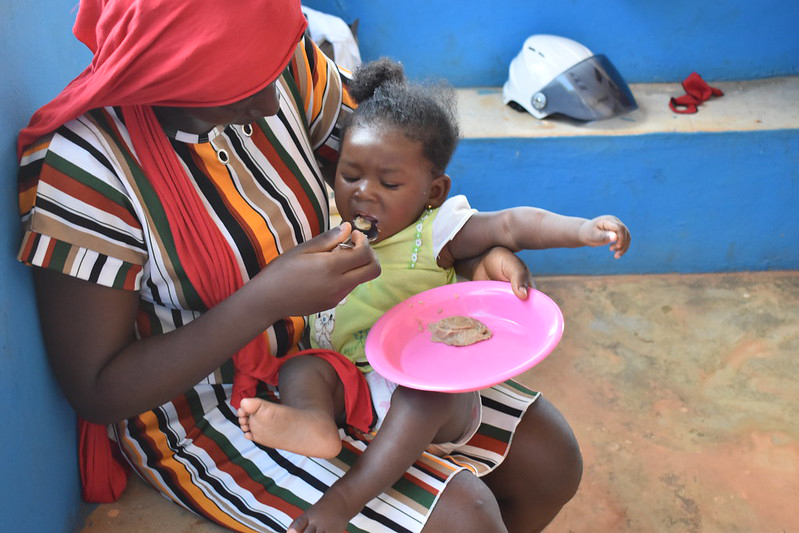
Malnutrition is a widespread problem in Côte d’Ivoire, where nearly half of the population lives in poverty and approximately one in three children under five suffers from chronic malnutrition or stunting. Malnutrition rates are highest in the Poro region in the Savanes districts in the northern part of the country. BGR partner Helen Keller International has been working in communities of the Poro region since 2013 to increase production, access, and consumption of nutritious foods, particularly by women and children; improve household incomes; and provide education related to infant and child nutrition, hygiene, sanitation, and health.
BGR’s support will help Helen Keller International continue this work in the Poro region. In the project’s third year, HKI will conduct joint supervisions in 30 health centers in Korhogo to learn how staff are using the skills gained during the first year of the project and conduct additional training if necessary. The centers serve an estimated 30,000 people. The project will also complete construction of three water-supplying boreholes, serving 3,000 people over the three years of the project, and one irrigation system to provide much-needed access to clean water for 1,000 people. Third year of a three-year project.

Malnutrition is a widespread problem in Côte d’Ivoire, where nearly half of the population lives in poverty and approximately one in three children under five suffers from chronic malnutrition or stunting. Malnutrition rates are highest in the Poro region in the Savanes districts in the northern part of the country. BGR partner Helen Keller International has been working in communities of the Poro region since 2013 to increase production, access, and consumption of nutritious foods, particularly by women and children; improve household incomes; and provide education related to infant and child nutrition, hygiene, sanitation, and health.
BGR’s support will help Helen Keller International continue this work in the Poro region. In the project’s third year, HKI will conduct joint supervisions in 30 health centers in Korhogo to learn how staff are using the skills gained during the first year of the project and conduct additional training if necessary. The centers serve an estimated 30,000 people. The project will also complete construction of three water-supplying boreholes, serving 3,000 people over the three years of the project, and one irrigation system to provide much-needed access to clean water for 1,000 people. Third year of a three-year project.

